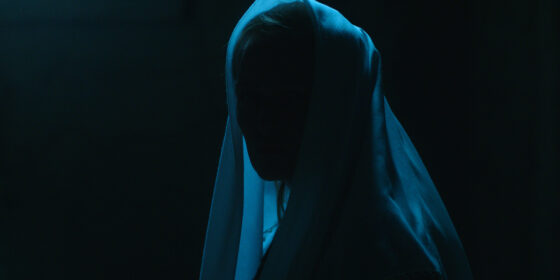ZANA (Antoneta Kastrati, Albania/Kosovo) — Discovery

By Dana Reinoos
Twenty years after the end of the Kosovo war, Kosovar filmmaker Antoneta Kastrati makes her narrative debut with ZANA, a fictionalized treatment of the deeply ingrained trauma still acutely felt by survivors. Lume (Adriana Matoshi, whose placid face explodes into rage and grief at unexpected moments) is married to Ilir (Astrit Kabashi); the two had a daughter who was killed in the war, and Lume has never recovered. Ilir and, more urgently, his mother Remzije (Fatmire Sahiti), wants to have another child, and Remzije is willing to literally drag her resistant daughter-in-law to a psychic, who concludes that Lume is possessed by a demon. At the same time, the threat of Ilir taking a second, younger wife looms in the air if Lume cannot conceive.
Demonic possession serves here as a stand-in for PTSD: the former is easier to talk about, and even to cure. The men in Lume’s life scream at her, physically restrain and abuse her during “exorcism” sessions, rather than talk to her about her deep, endless grief. Lume sleepwalks and suffers from night terrors so that it’s eventually impossible for her (or the viewer) to understand what is a dream, and what is reality: the trauma she feels, knotted into every fibre of her being, is the same in both.
ZANA is an overwhelming emotional experience, as Kastrati lays Lume’s pain out without minimizing it. But there are also moments of beauty in the landscapes of rural Kosovo, and the sound design foregrounds the small joys of pastoral life: the wind in the trees, the crunch of snow underfoot, a bucket dipping into a well. Kastrati dedicates the film to her mother and sister, both of whom died in the war. These beautiful moments she unveils amidst the tragedy are like a tribute to a lost home.


